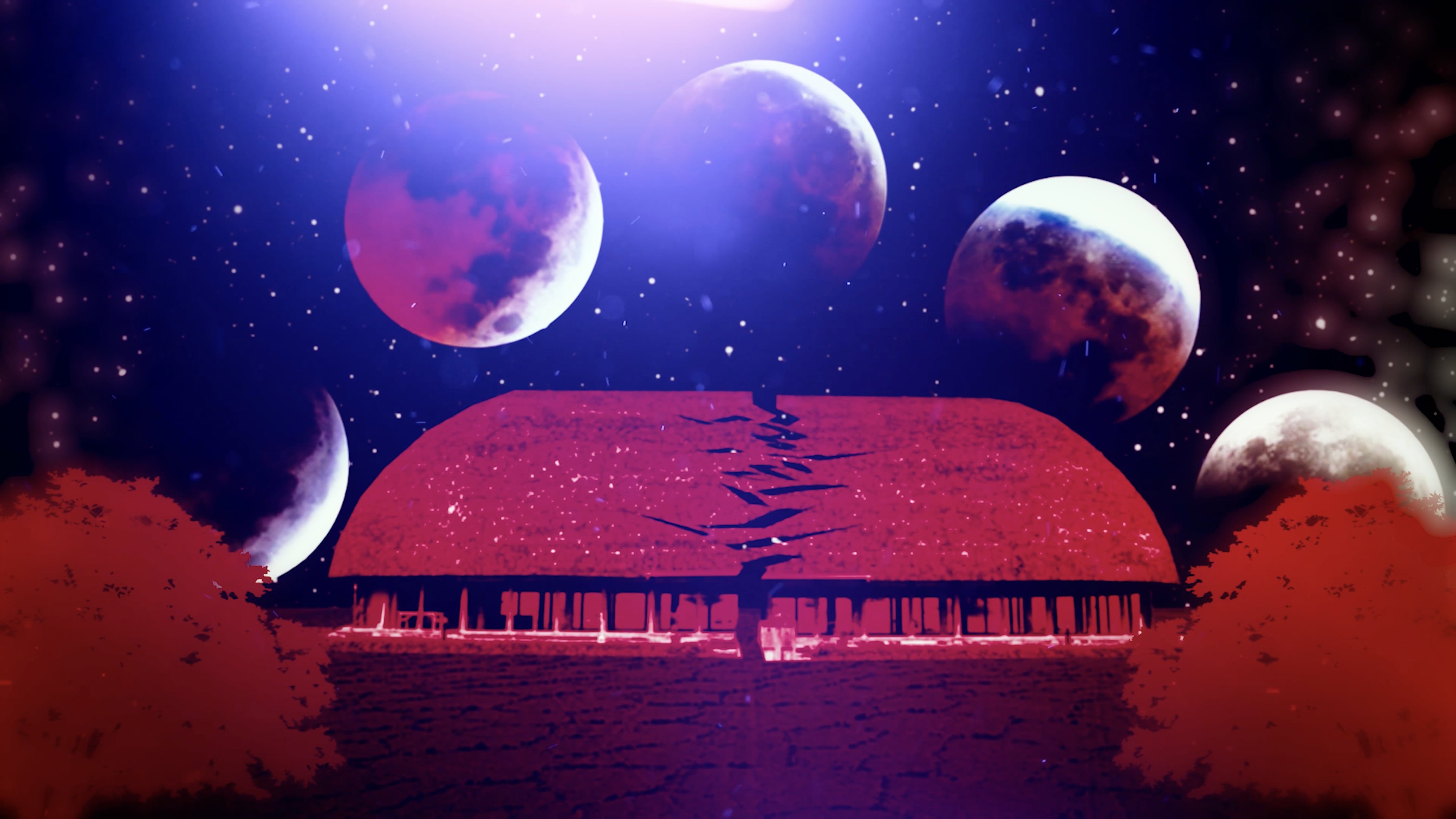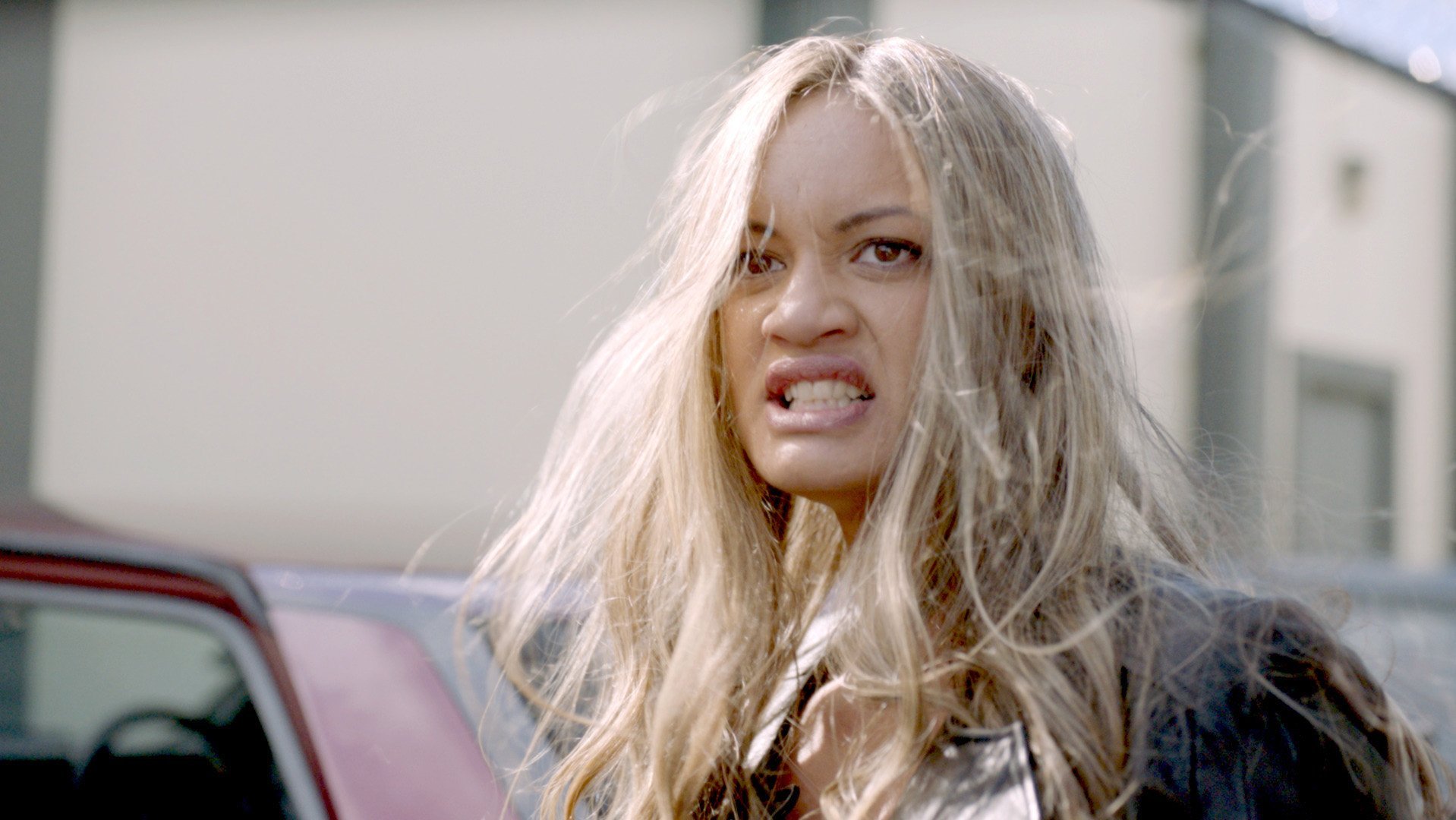
The Whānau Mārama International Film Festival’s Ngā Whanaunga Māori Pasifika collection showcases the best film-making tāngata whenua and tagata Pasifika have to offer. This year’s 89-minute collection features eight unique short films selected by Leo Koziol (Ngāti Kahungunu, Ngāti Rakaipaaka), director of the Wairoa Film Festival, and Craig Fasi (Niue), director of the Pollywood film festival. The collection, nearing its 20th anniversary, offers a glimpse into Aotearoa’s up-and-coming film-making talent.
TULOUNA LE LAGI
Pati Tyrell’s (Sāmoan) Tulouna Le Lagi is abstract, rich and mournful. A drum beat lies beneath images of Sāmoa’s natural landscape and poised bodies, flickering in technicolor. The skillful combination of elements makes for a meditative experience. Tyrell gently guides the viewer, while allowing the mind to wander. The viewer is given space to consider the divine and the slow, shifting plates of life.

Kōkakō, directed by Douglas Brooks (Te Ati Haunui-a-Pāpārangi, Ngati Tuwharetoa, Pākehā) follows Ashley as she tries to find and photograph the extinct Kōkakō. When she receives news that her grandmother has passed away, further splintering her family, a playful and hallucinogenic interaction ensues between her and the birds of the forest. Kōkakō is unexpectedly funny while exploring the cyclical nature of life and the ghosts of memories.

Whakaako kia Whakaora/Educate to Liberate, directed by Robert George (Kuki Airani, Ngāti Kea, Ngāti Tuara) is a documentary following the creation of a mural on the corner of Karangahape Rd and Gundry St in Auckland. The piece of art, which slowly reveals itself over the course of the film, serves to remind the increasingly gentrified population of the area’s predecessors, the Polynesian Panthers. At the centre of the vibrant artwork is a mother and a baby, a sign of generations persisting and renewing. George’s film captures the struggle for equality and the joy of resistance, making for an uplifting experience.

After a stint of crime, Sene of South Auckland sees his life unravel before him in Saito Lilo’s (Sāmoan) The Last Sunday. The Unitec-Te Pūkenga Screen Arts graduating piece is an empathetic weigh-in on the hot topic of youth crime in Aotearoa. Although punctuated by brief moments of joy, the film’s setting is an impoverished community struggling to make ends meet. Sene finds himself wrestling with issues of money, status and religion as the pressure mounts to help his family financially. Lilo guides the viewer through the forces that lead young people into crime, while providing an aesthetically satisfying and well-paced story.

Keelan Walker’s (Rangitāne o Wairua, Ngāti Kuia, Ngāti Apa ki to Rā Tō) Bringing Mere Home plays with both the audience’s heart strings and heart rate. On his drive home from the local pub, Billy comes across a young girl and offers her a ride home. When the situation escalates from eerie to terrifying, Billy is forced to reflect on some of his own behaviour. Isis Bradley-Kiwi as Mere demands the audience’s attention with her creepy performance. Set in a rural town, the film feels distinctly New Zealand, and the issues it raises are all too familiar.

Tia Barrett’s (Ngāi Tahu, Ngāti Mamoe, Te Rapuwai, Waitaha, Ngāti Maniapoto, Ngāti Tamainupō) He Pounamu Ko Āu is a meditation of the creation of pounamu and belonging. The film is draped around a waiata, which recites the whakapapa of pounamu. Barrett’s ancestral connections to Te Wai Pounamu shine through in this carefully considered retelling. Her assertion is "He Pounamu Ko Āu," or "I am Pounamu." Like pounamu, she has emerged from the earth, created by water, part of nature’s whānau.

Hione Henare (Ngāi Tara, Muaūpoko, Ngāti Huia) creates light from the darkness in I am Paradise. The story follows Paradise, a single, pregnant mother living without any support except the unconditional love of her two children. Although struggling to keep her head above water, the whanaungatanga, kaitiakitanga and aroha that persists in her remaining family keeps her afloat. The story is distinctly Māori, from a pukana at the eviction officers to the story of Rangi and Papa’s separation as the film’s backdrop. Ricky Lee Russel-Waipuku, known from Taika Waititi’s Boy as Chardonnay, offers a captivating performance as Paradise. She balances both the fiery and gentle aspects of Paradise’s nature, breathing life into a complex, lioness character.
Mako, directed by Mark Papalii (Samoan), was not available for review.
The screenings
Ngā Whanaunga Māori Pasifika Shorts 2023 screens as part of the Whānau Mārama International Film Festival at Dunedin’s Rialto Cinemas today at 2.30pm and Wednesday at 1.45pm.












